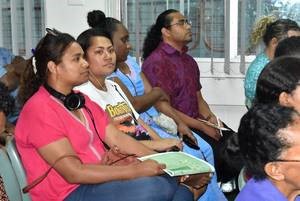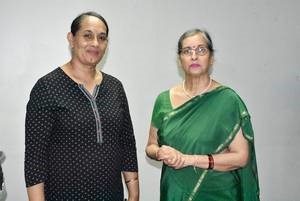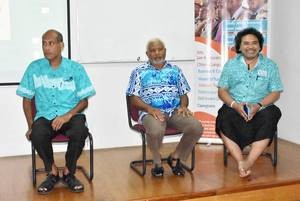Related News

Anaemia is becoming one of the fastest growing Non-Communicable Diseases in Fiji.
National NCD Advisor Dr Isimeli Tukana made this alarming revelation during the University of the South Pacific Lautoka Campus and Foundation for Rural Integrated Enterprises & Development (FRIEND) organised panel discussion on how local food can become a potential solution for NCD crisis in Fiji held at The University of the South Pacific Lautoka Campus on 22nd August 2019.
Dr Tukana revealed that in 2004 anaemia was 48.2 percent of the population and in 2015 it is sitting at 63.8 percent.
It has been revealed that for children from 5 to 14 years anaemia has increased from 21.5 % to 45 % which is almost half of the country’s population. For 15-17 years children from 33.02 % cases of anaemia has increased to 43.5%.
“In adults before we only thought women have anaemia but now our male population also face the anaemia crisis.”
“We now have an increase from 21% to 32% for men suffering from anaemia. Women it has increased from 35.3% to 48.2% and pregnant women it has increased from 36% to 41%,” he informed.
Dr Tukana further revealed that according to the 2017 census only 3.2 percent Fijians in the country live over the age of 65 and only 1.6 percent Fijians go over 75.
He stressed that Non-Communicable Disease was not in Fiji before 1985 or was insignificant and it was from 1995 that a deeper study showed emergence of diabetes and other NCDs in Fiji.
He highlighted that pre-1985 the Fijian population heavily relied on local food which in tend kept the NCDs at minimal level.
“As our population moved away from consumption of local food and started choosing more foreign and processed food severe problem in the form of NCDs started escalating unprecedentedly.”
“Local fruits such as guava, pawpaw and lemon have far more percentage of Vitamin C than imported fruits like apple and pear.”
“Food is not a problem in Fiji it’s the Fijians, therefore we have to change our mindset and get back to our roots and seriously rethink about consuming local food,” Dr Tukana emphasized.
Research Fellow on Climate Change, Food Security and Disaster Risk Management from USP’s Pacific Centre for Environment and Sustainable Development, Lau Viliame Lesu revealed that a large percentage of Fijians now consume a lot of sugar product as a sweets and beverages.
Mr Lesu stressed that alarming to note is that most of the people consuming high percentage of sugary products are highly educated males.
He informed that a recent study conducted by them showed that 97 percent of Fijians now purchase or buy their food with minimal attention given to growing your own food.
Dr Sakiusa Mainawalala from University of Fiji’s Umanand Prasad School of Medicine (UPSM) revealed that choosing local food can arrest progress of infections in NCDs.
Dr Mainawalala stressed that people have to choose the right food on their plate and unrefined cheap local food is the best solution towards tackling the rising NCDs problem in Fiji and the Pacific.

